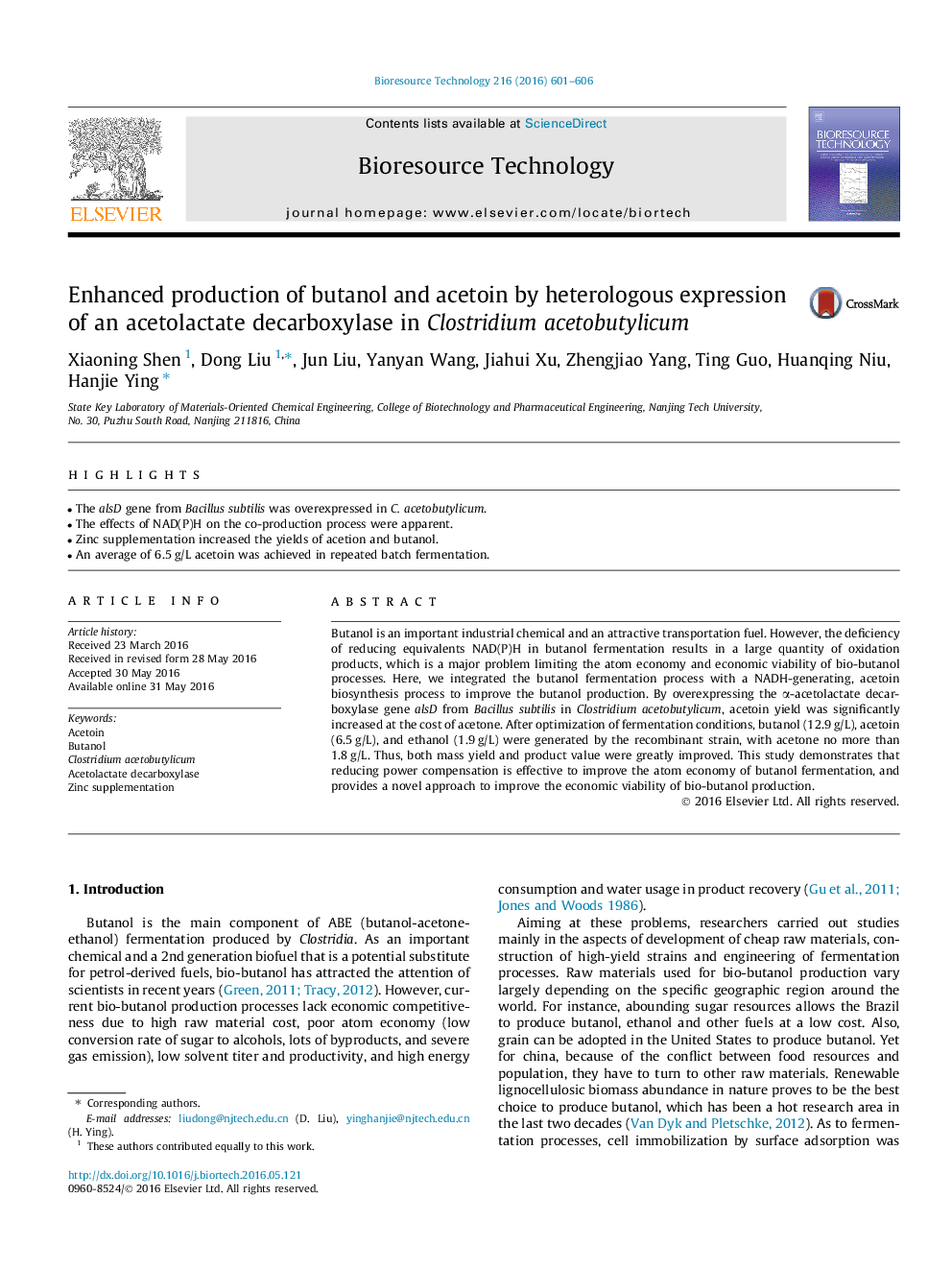| Article ID | Journal | Published Year | Pages | File Type |
|---|---|---|---|---|
| 7070996 | Bioresource Technology | 2016 | 6 Pages |
Abstract
Butanol is an important industrial chemical and an attractive transportation fuel. However, the deficiency of reducing equivalents NAD(P)H in butanol fermentation results in a large quantity of oxidation products, which is a major problem limiting the atom economy and economic viability of bio-butanol processes. Here, we integrated the butanol fermentation process with a NADH-generating, acetoin biosynthesis process to improve the butanol production. By overexpressing the α-acetolactate decarboxylase gene alsD from Bacillus subtilis in Clostridium acetobutylicum, acetoin yield was significantly increased at the cost of acetone. After optimization of fermentation conditions, butanol (12.9 g/L), acetoin (6.5 g/L), and ethanol (1.9 g/L) were generated by the recombinant strain, with acetone no more than 1.8 g/L. Thus, both mass yield and product value were greatly improved. This study demonstrates that reducing power compensation is effective to improve the atom economy of butanol fermentation, and provides a novel approach to improve the economic viability of bio-butanol production.
Related Topics
Physical Sciences and Engineering
Chemical Engineering
Process Chemistry and Technology
Authors
Xiaoning Shen, Dong Liu, Jun Liu, Yanyan Wang, Jiahui Xu, Zhengjiao Yang, Ting Guo, Huanqing Niu, Hanjie Ying,
